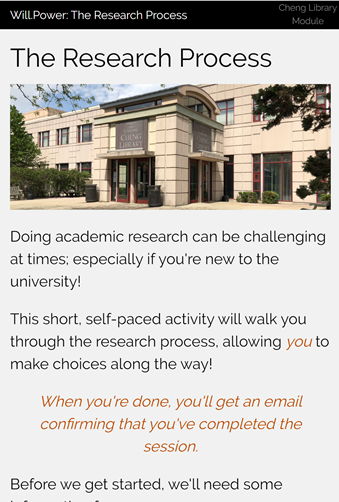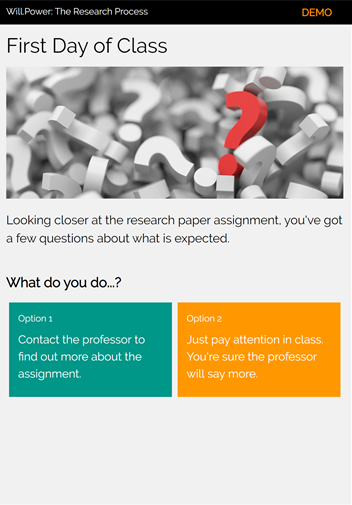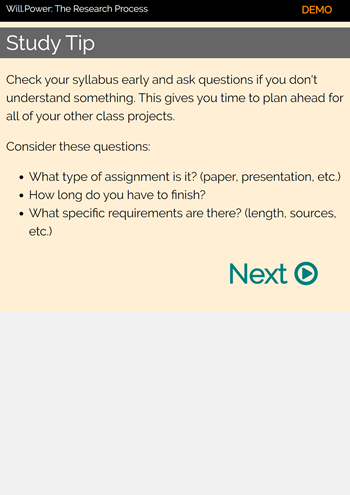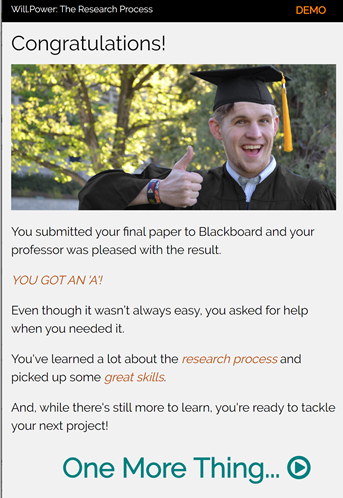By Anthony C. Joachim
At William Paterson University’s Cheng Library, we are constantly looking for ways to improve online learning opportunities for students. Partnerships with liaison departments have often led to virtual information literacy sessions and tutorial ideas. One such partnership has been with the first-year students’ orientation course; known, over the years, as First Year Seminar, Pioneer Success Seminar, and most recently Will.Power.101.
Last summer, long before concerns of a pandemic were even a glimmer on the horizon, Cara Berg and I were invited to join in planning the library module of this introductory course. We proposed a number of workshops for students to learn information literacy skills, while reserving research instruction for subject-based classes. Among these experiences were sessions on avoiding plagiarism, exploring ebooks, and critical evaluation of information.
During the spring semester, we were asked to do a live session during the program’s Library module, for which we planned an ongoing series of webinars throughout the day on April 6th. This would allow us to reach all 52 sections of Will.Power and ensure that all students receive the same content. These webinars were designed around the research process, and used the ACRL Framework’s Information Creation as a Process frame to set learning outcomes.
Unfortunately, everything changed in mid-March of this year with the rise of the coronavirus and its devastating effects on communities around the world. Courses shifted to online and students were forced to adjust to this new way of learning. As always, the library was ready to meet this new challenge by moving services, staff, and even instruction online!
In response to the move online, concerns were raised about the viability of a large-scale, synchronous webinar for the Will.Power Library module. Instead, we began to rethink the lesson as a standalone activity that students could complete independently, while still receiving the same content in an interesting and fun way. Looking the classic Choose Your Own Adventure books of the 1980s, we designed a simple, choice-based lesson that incorporated a narrative element and gaming concepts to engage learners.
The Research Process is based in a hypothetical college course where students must make decisions at critical points in order to complete a research paper. From seeking clarification about the assignment to choosing the right resources, students are presented with two options: one “good” and one “bad”. Depending on what they choose, feedback either confirms “good” choices or corrects “bad” ones. Upon finishing the activity, students receive an emailed certificate that can shared with their professor as proof of completion.
A very simple design, these choices do not adversely affect the course of the lesson. Students will all move through the same steps and ultimately receive the same successful grade on the imaginary paper. But, the element of choice creates opportunities for students to stop and think about the content before making a decision, mimicking the real-life process.
At this time, the online module has been completed by over 120 students and the results are promising! Nearly 85% of respondents correctly chose at least five of the seven “good” options and over 80% rated the experience (on a scale of 1 to 5) with four or more stars. Further assessment will be necessary to ensure that it meets the learning objectives, but we are excited about the possibility of more advanced learning tools of this type in the future!




Anthony C. Joachim, is the Instructional Design Librarian and Co-Coordinator of User Education (with Cara Berg) at the David & Lorraine Cheng Library, William Paterson University.
